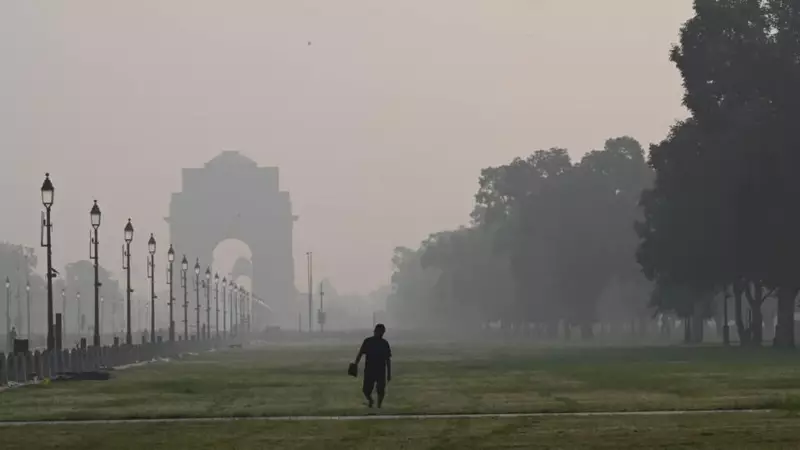
The festive cheer of Diwali has given way to a thick blanket of toxic smog in India's capital, with air quality levels plunging into the 'severe' category across Delhi on Tuesday morning. The city woke up to hazardous breathing conditions as pollution levels saw a dramatic spike following extensive firecracker bursting during the festival celebrations.
Widespread Pollution Crisis
Multiple monitoring stations across the National Capital Region recorded alarming AQI readings, with several areas crossing the 400-mark that categorizes air quality as 'severe.' The System of Air Quality and Weather Forecasting and Research (SAFAR) reported that the overall Delhi AQI had deteriorated significantly compared to pre-Diwali levels.
Key Affected Areas
- Major residential and commercial zones reporting AQI above 400
- Visibility reduced significantly across the city
- Pollution levels 40-50% higher than previous days
- Multiple stations recording 'severe' to 'hazardous' readings
Health Advisory Issued
Medical experts have issued urgent health advisories, particularly for vulnerable groups including children, elderly citizens, and individuals with pre-existing respiratory conditions. Doctors recommend:
- Avoiding outdoor physical activities
- Wearing N95 masks when stepping outside
- Keeping windows closed in homes and vehicles
- Using air purifiers indoors
- Staying hydrated and monitoring for respiratory symptoms
Environmental Emergency
The severe air quality crisis comes despite various measures announced by authorities to control pollution during the festival season. The combination of firecracker emissions, stagnant weather conditions, and existing pollution sources has created a perfect storm for Delhi's air quality.
Meteorological factors including low wind speed and temperature inversion have trapped pollutants close to the ground, preventing their dispersion and leading to the accumulation of harmful particulate matter.
Long-term Concerns
Environmental activists and health experts have expressed deep concern about the recurring pattern of severe pollution episodes in Delhi, particularly during winter months. The post-Diwali spike represents one of the most significant annual pollution events, raising questions about the effectiveness of current pollution control strategies.
The situation remains critical, with authorities monitoring the conditions closely and considering additional measures if the air quality doesn't show improvement in the coming days.






